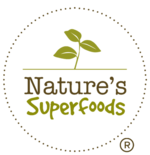-
No products in the cart.
Is Food the Culprit?: How Diet Impacts Your Skin Health

Heart health, mental health, eye health – the list goes on when it comes to maintaining various aspects of our overall health. However, one pillar that is often overlooked is the health of our skin. Many assume that having an expensive skincare routine is sufficient in maintaining its health in peak condition. Although topical remedies can indeed have an impact, having healthy and glowing skin requires much more than that. Being one of the largest organs in the body, the skin says a lot about the way we eat and our underlying health conditions.
How Our Diets Can Address Skin Health Concerns
Changes in our diet or leading an unhealthy lifestyle can wreak havoc on our skin. As such, it is important to understand how diet affects your skin – we dive into some of the common skin health concerns and how you can address them with a diet filled with superfoods.
1. Pimples and breakouts
In Singapore, acne scars and pimples are one of the top concerns amongst women. Though a normal occurrence caused by hormonal changes within the body, certain foods have been linked to the development of acne-prone skin. From oil ladened foods like pizzas to salty ones like French fries are only some of the few examples that can trigger those zits to pop out. While more research is conducted to cement the correlation between fast foods and acne development, many studies have shown how refined sugars can influence hormones and inflammation.
One study found that people who consumed added sugars frequently increased their risk of developing acne by 30%. This is mainly because refined and simple sugars or carbohydrates will increase blood sugar levels faster than whole foods. Insulin levels will thus spike and increase androgen levels, which will then stimulate sebum production and result in acne.
Besides refined sugars and carbohydrates, dairy has also been linked to worsening acne conditions. Researchers suggest that consuming milk from cows that have been treated with artificial hormones can throw our hormonal balance off and trigger acne. Recombinant Bovine Growth Hormone (rBGH) that most cows are treated with can increase the Insulin-like Growth Factor (IGF-1) in our blood by up to 10%. The presence of this hormone might increase sebum production, further aggravating acne.
From the above, it is thus easy to see why a diet that excludes refined sugars and dairy can be helpful to improve the condition of acne-prone skin. In addition to cutting these foods out, consider adding acne-fighting foods to your diet to improve your skin’s condition. Some of these acne-fighting foods to consider include:
- Antioxidant-rich fruits and vegetables that will reduce inflammation.
- Vitamin-rich foods that regulate the skin cycle. For example, Vitamin E and C have a calming effect on acne. Try adding Camu Camu berry powder into your morning smoothies, as it can deliver up to 750% of the Vitamin C RDI per teaspoon.
- Probiotics are also linked to attaining optimal skin health. A bacterial supplement, probiotics can calm inflammation and restore the skin barrier function. When added to your diet, it improves the microbiome in your gut and reduces inflammation throughout the body, resulting in better acne control.

Fine lines and wrinkles often symbolise old age, but at the same time, they are a clear indicator of the loss of elasticity. Be it sun exposure or aging, the loss of collagen and the damage caused to it will increase the rate at which fine lines appear. Smoking and following a diet that is lacking in Omega-3 fatty acids can greatly affect this aspect of our skin’s health too. So, the next time you visit an organic food store in Singapore, like Nature’s Superfoods, consider adding these foods to your cart:
- When it comes to countering sun damage, consuming antioxidant-rich foods is the best way to get rid of free radicals in the body. Acai berry powder and maqui berry powder are amazing superfoods to consume daily. Acai berry powder contains high levels of important antioxidants known as anthocyanins and Omega fatty acids, while Maqui berry powder has anti-aging effects due to its ability to suppress cell damage expedited by UV rays’ exposure.
- Omega Sacha Inchi Seed Oil is also rich in Omega-3 and Omega-6 fatty acids. Try out our breakfast muesli porridge recipe that is filled with the nutritious goodness of Omega-3-rich chia seeds and other superfoods.
- Craving for a bar of chocolate? Instead of munching on treats with refined sugars, try our organic dark chocolate made with cacao powder and unrefined coconut sugar instead! Rich in flavonols, a study suggested that the antioxidants raw cacao contains can protect the skin from harmful UV effects and improve skin elasticity.
Habits to Improve Skin Health
In addition to all the aforementioned superfoods that you can get from organic food shops, there are other healthy habits you can inculcate to improve various types of skin conditions.
1. Healthy habits to improve dry skin

Drinking 8 glasses of water is a habit that is often encouraged. This is because drinking sufficient water will not only flush out toxins, but it will also provide our organs with the necessary moisture that has been lost through sweat and other metabolic processes. Therefore, drinking water and eating foods with high amounts of water content such as vegetables and fruits is important. Also be sure to reduce the intake of excessively salty foods as sodium can dehydrate the skin, causing dryness and premature aging.
2. Healthy habits to prevent oily skin
Although it is said that food only makes up for 25% of the cause of acne, it is crucial to understand that our diet plays an important role in attaining healthy levels of oil in our skin. Consuming foods that are rich in vitamins, healthy fats, prebiotics, and probiotics will help balance the bacteria in our gut. This is especially important since the gut microbiome performs functions such as immune regulation and serum lipid modulation. Therefore, it can greatly impact our skin health and reduce the chances of developing acne.
3. Following a low-GI diet
Abiding by a low GI diet plan has many benefits. This is because a high glycaemic diet or a diet high in added or refined sugars has many negative side effects, including increased sebum production, accelerated aging by breaking down collagen fibres through glycation, and even worsening existing medical conditions such as eczema. Hence, a low GI diet is an ideal one to follow to maintain optimal skin health.

